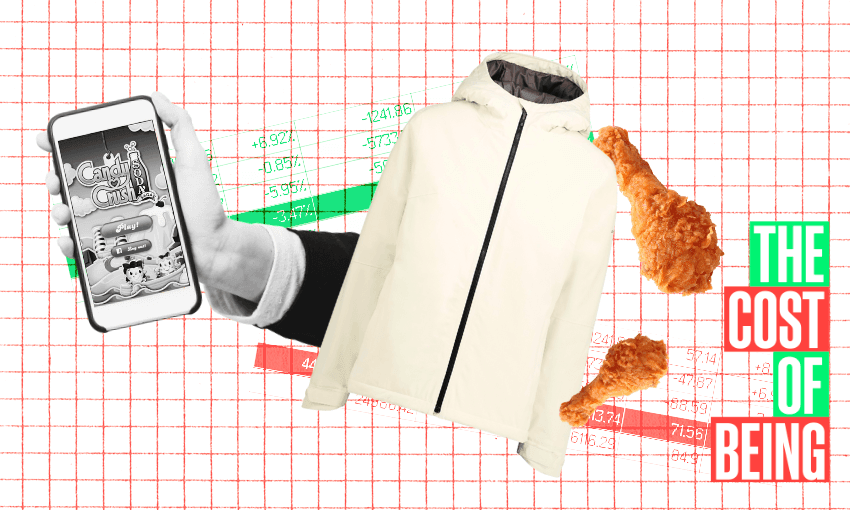As part of our series exploring how New Zealanders live and our relationship with money, a secondary school teacher living in a small town shares her approach to spending and saving.
Want to be part of The Cost of Being? Fill out the questionnaire here.
Gender: Female.
Age: 27.
Ethnicity: Pākehā.
Role: First year secondary school teacher.
Salary/income/assets: $1,600/fortnight.
My living location is: Small town.
Rent/mortgage per week: Living alone in an old, cold, mouldy, Ministry of Education house – $380/week.
Student loan or other debt payments per week: Student loan $150ish/week. $27k left to payoff.
Typical weekly food costs
Groceries: Average $120 per week for me and my dog. I only ever shop specials, so stock up when something is on sale.
Eating out: $0.
Takeaways: $15 per week average.
Workday lunches: Leftover student lunches or what the food tech teacher cooked in class (same for dinner some nights too).
Cafe coffees/snacks: $0.
Savings: No, I have lost 7k of savings in the past nine months. Largely due to the cost of commuting then moving for work.
I worry about money: Always.
Three words to describe my financial situation: Dreary, worrisome, heavy.
My biggest edible indulgence would be: Fried chicken
In a typical week my alcohol expenditure would be: $0.
In a typical week my transport expenditure would be: $10 petrol. I now walk to work and it’s a very short drive to town when needed.
I estimate in the past year the ballpark amount I spent on my personal clothing (including sleepwear and underwear) was: $800. I gained a lot of weight meaning I needed bigger clothes. Always buy on sale though.
My most expensive clothing in the past year was: $90 – Kathmandu insulated rain jacket (down from $350).
My last pair of shoes cost: $110 – Reebok Nanos (on sale of course).
My grooming/beauty expenditure in a year is about: $30. Except shampoo, body wash, deodorant etc.
My exercise expenditure in a year is about: $1,000 – gym membership.
My last Friday night cost: $0 – Netflix (thanks Mum) and Candy Crush.
Most regrettable purchase in the last 12 months was: Curtains and blinds that didn’t fit my rental but I couldn’t return because they were on clearance.
Most indulgent purchase (that I don’t regret) in the last 12 months was: A new mattress. Best decision ever.
One area where I’m a bit of a tightwad is: Everywhere. Always will find a discount code or way to get something cheaper.
Five words to describe my financial personality would be: Cheap, bargain hunter, cautious spender.
I grew up in a house where money was: Not talked about but obviously limited.
The last time my Eftpos card was declined was: 2012 at the high school canteen.
In five years, in financial terms, I see myself: Earning more so having the ability to save.
Describe your financial low: A few months ago I had a full-on menty b after being declined a WINZ allowance to move for work. Had no idea how I would afford rent or furniture. Never had literally no money in my bank account before this year.
I would love to have more money for: Adopting and fostering all the dogs. And being able to do activities or travel NZ.
I give money away to: Shouting my friends dinner in return for favours (eg letting me stay at theirs to limit travel expenses).

